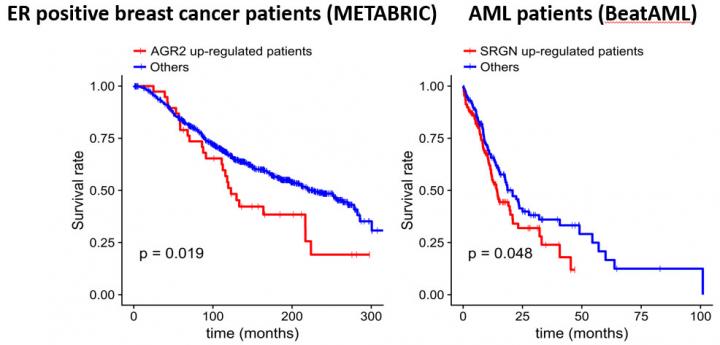
Credit: University of Helsinki
Researchers from the Faculty of Medicine and the Institute for Molecular Medicine (FIMM) at the University of Helsinki have developed a computational model, Combined Essentiality Scoring (CES) that enables accurate identification of essential genes in cancer cells for development of anti-cancer drugs.
Why are the essential genes important in cancer?
Cancer is the leading cause of death worldwide. Cancer cells grow faster usually with the activation of certain genes. Targeted therapies aim at inhibiting these genes that are activated only in cancer cells, and thus minimizing side effects to normal cells.
High-throughput genetic screening has been established for evaluating the importance of individual genes for the survival of cancer cells. Such an approach allows researchers to determine the so-called gene essentiality scores for nearly all genes across a large variety of cancer cell lines.
However, challenges with replicability of the estimated gene essentiality have hindered its use for drug target discovery.
“shRNA and CRISPR-Cas9 are the two common techniques used to perform high-throughput genetic screening. Despite improved quality control, the gene essentiality scores from these two techniques differ from each other on the same cancer cell lines,” explains Wenyu Wang, first author of the study.
How can we do better?
To harmonize genetic screening data, researchers proposed a novel computational method called Combined Essentiality Scoring (CES) that predicts cancer essential genes using the information from shRNA and CRISPR-Cas9 screens plus molecular features of cancer cells. The team demonstrated that CES could detect essential genes with higher accuracy than the existing computational methods. Furthermore, the team showed that two predicted essential genes were indeed correlated with poor prognosis separately for breast cancer and leukaemia patients, suggesting their potential as drug targets (Figure 1).
“Improving gene essentiality scoring is just a beginning. Our next aim is to predict drug-target interactions by integrating drug sensitivity and gene essentiality profiles. Given the ever-increasing volumes of functional screening datasets, we hope to extend our knowledge of drug target profiles that will eventually benefit drug discovery in personalized medicine,” says Assistant Professor Jing Tang, corresponding author of the study.
###
Media Contact
Assistant Professor Jing Tang
[email protected]
Original Source
https:/
Related Journal Article
http://dx.




